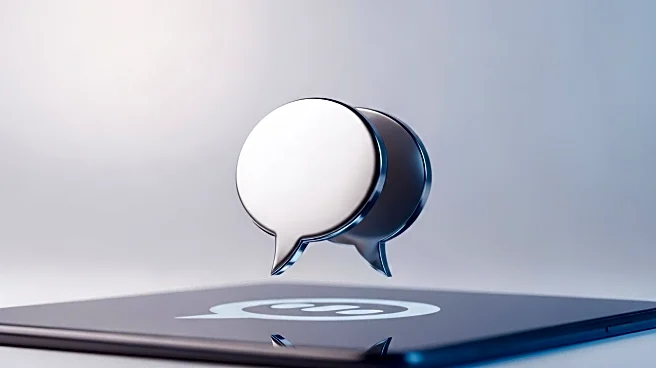What's Happening?
OpenAI, in collaboration with the National Bureau of Economic Research, has released a study analyzing how users interact with ChatGPT. The study found that 80% of usage falls into categories such as practical guidance, seeking information, and writing. Writing is the most common work-related use, while personal use has increased, with non-work-related interactions rising from 53% to 73%. The study also highlights a closing gender gap, with female users now reaching parity with male users. OpenAI used AI to categorize messages, noting that only a small percentage involved virtual companionship or social-emotional issues.
Why It's Important?
The study provides insights into the evolving use of AI chatbots, highlighting trends in personal and work-related applications. The increase in personal use suggests a shift in how individuals engage with AI, potentially impacting industries such as education, communication, and mental health. The closing gender gap indicates broader accessibility and appeal of AI technology across demographics. Understanding user behavior can inform the development of AI tools and services, ensuring they meet diverse needs and preferences. The findings may influence how businesses and organizations integrate AI into their operations and customer interactions.
What's Next?
OpenAI may use the study's findings to refine ChatGPT's capabilities and user experience, addressing areas such as virtual companionship and social-emotional support. The company could explore partnerships or initiatives to expand AI's role in personal and professional settings. As AI technology continues to evolve, further research may be conducted to track changes in user behavior and preferences. The study's insights could guide future developments in AI applications, enhancing their relevance and effectiveness for a wide range of users.









